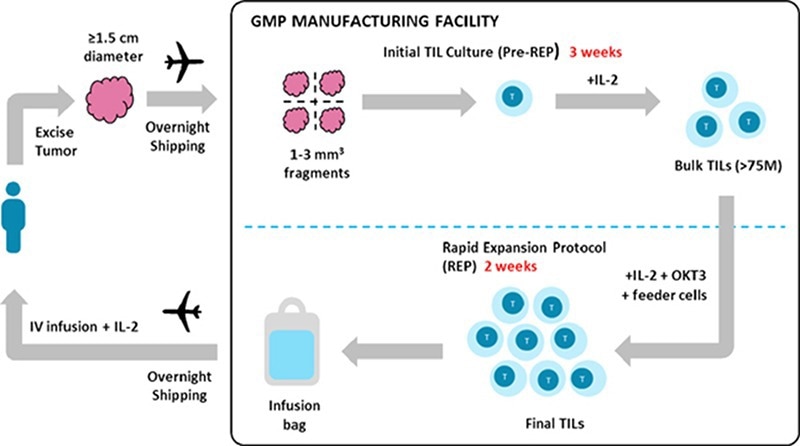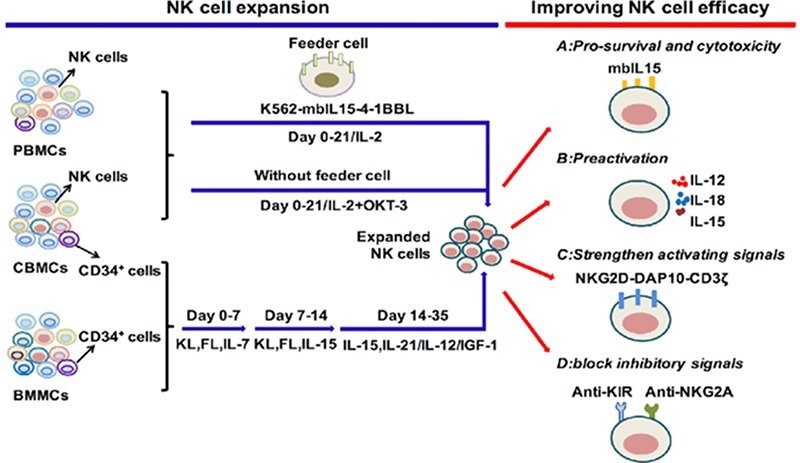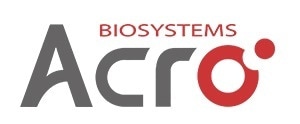Interleukin-2 (IL-2) is a vital cytokine in adoptive cell therapy that plays an important part in the stimulation and growth of immune cells as well as Tumor-Infiltrating Lymphocytes (TIL), Chimeric Antigen Receptor (CAR)-T cells, and Natural Killer (NK) cell ex vivo expansion.
Even with broad utilization in various immune cell expansion protocols as a growth factor, optimizing positive therapeutic outcomes and mitigating the possibility of connected toxicities is vital.
Tumor-infiltrating lymphocyte (TIL) expansion with IL-2
Interleukin-2 (IL-2) plays an important part in the stimulation and growth of TILs. TILs are immune cells that have invaded tumors and instigated anti-tumor immune reactions. Combining TIL therapy and IL-2 can improve the anti-tumor effect by sustaining responses in some patients.
A Phase I trial that combined TIL adoptive cell therapy (ACT) with dendritic cell (DC) vaccination in metastatic melanoma patients exhibited full responses in some patients and a continued response that lasted more than 18 months.
A TIL therapy method requires collecting T cells from a patient’s tumor tissue and choosing the cells capable of recognizing specific tumor antigens. The collected TILs go through rapid ex vivo stimulation and growth with IL-2 before being reintroduced into the patient.
Collecting TILs begins with isolating TILs from removed tumor tissue blocks and utilizing a rapid expansion protocol (REP) for in vitro amplification. To reduce T-cell damage, the tumor block should be divided into small 1 mm3 sections and cultured in a high-dose IL-2 medium for two weeks.
To accelerate the in vitro cultivation period and maintain TIL effectiveness, researchers added high doses of IL-2, anti-CD3 antibodies, and PBMC feeder cells into the rapid expansion procedure.
The requirement to repeat IL-2 additions every few days creates a logistical issue for manufacturing at scale. Moreover, the potential differentiation of TILs jeopardizing clinical effectiveness is a concern.
The future fight against cancer will focus on TIL therapy protocols and improved patient outcomes that include alternative ex vivo expansion techniques that use cytokines like IL-15 and IL-21, immune checkpoint inhibitors, and co-stimulatory molecules to activate TIL amplification and reduce unwanted differentiation.

Development of TIL Therapy Under IL-2 Conditions. Image Credit: ACROBiosystems
CAT-T cell expansion using IL-2
CAR-T cell expansion depends on IL-2 as a primary cytokine, providing the vigorous T cell growth required for ex vivo clinical production.
Recognized as a T-cell growth factor, the discovery of IL-2's essential role in instigating T cell proliferation was groundbreaking.
In CAR-T cell therapy, T cells collected from patients undergo a genetic alteration to extract chimeric antigen receptors (CARs) before the cell doses required for cell therapy use are expanded.
Recognizing the significance of persistent memory T cells in cancer treatment, the conventional method utilizes the co-culturing of T cells with IL-2 and other growth factors. Combining IL-7 and IL-15 was revealed as a significant cytokine ‘cocktail’ that preserved the T memory stem (Tscm) phenotype and augmented CAR-T cell cytotoxicity against tumors.
The synergistic incorporation of IL-21 with IL-7 or IL-15 activates CD8+ T cell growth and supports IFN-γ production, strengthening these immune effectors' cytotoxic capabilities. Notably, IL-21 promises to enhance the therapeutic arsenal against cancer by pushing the in vitro differentiation of Tscm cells.

The growth kinetics of T cells under the stimulation of single cytokines doses (IL-2, IL-7, & IL-15). Image Credit: Cytotherapy, 23(5), S177. (2021)
Immune cell expansion is shifting from the traditional addition of IL-2 throughout cell cultures. Even though it is essential for T cell function, its structured delivery is challenging because of severe toxicity risks.
To get around this problem, researchers have created innovative orthogonal IL-2 and IL-2 receptor systems that discerningly increase CAR-T cells, permitting structured delivery of IL-2 while reducing off-target toxicity. This method has significant capabilities in preclinical models, increasing CAR-T cell expansion and raising the anti-tumor effectiveness with minimal risk for IL-2 toxicity.
IL-2 in NK cell ex vivo expansion
Ex vivo NK cell expansion depends on IL-2 to push stimulation and growth. However, IL-2 can fall short of obtaining significant NK cell expansion in vitro. Researchers are utilizing integrative methods with cytokines like IL-15 and IL-21 to remove this restriction, which are well known for synergistic effects.
Synergistically combining IL-2 with IL-15 and IL-21 has exhibited exceptional effectiveness in fueling NK cell expansion. The result is raised cytotoxicity and maintained production of key anti-tumor cytokines, especially IFN-γ and TNF-α.

Cytokine regulation of NK cell expansion and cytotoxicity. Image Credit: ACROBiosystems
Preclinical melanoma models prove the effectiveness of this improved NK cell expansion and activation procedure. Continuing investigations are focused on clarifying the optimal cytokine cocktail to maximize NK cell expansion and to refine the cytotoxic potential for precision cancer immunotherapy.
Therefore, IL-2, in combination with select cytokines, has become an essential tool in NK cell expansion, advancing powerful anti-tumor activity and releasing the full therapeutic capabilities in immunotherapy.
Conclusion
IL-2 is a central cytokine in cell therapy, pushing immune cell stimulation and growth essential for successful anti-tumor responses in TIL, CAR-T, and NK cell therapies. TILs are expanded for tumor targeting, increasing CAR-T cell cytotoxicity and working with other cytokines to elevate NK cell activity.
The toxicity issue requires innovations like orthogonal IL-2 systems that maximize therapeutic benefits and keep risks minimal, calling attention to IL-2's critical role in developing immune cell therapy for precision cancer treatment.
About ACROBiosystems
ACROBiosystems is a cornerstone enterprise of the pharmaceutical and biotechnology industries. Their mission is to help overcome challenges with innovative tools and solutions from discovery to the clinic. They supply life science tools designed to be used in discovery research and scalable to the clinical phase and beyond. By consistently adapting to new regulatory challenges and guidelines, ACROBiosystems delivers solutions, whether it comes through recombinant proteins, antibodies, assay kits, GMP-grade reagents, or custom services. ACROBiosystems empower scientists and engineers dedicated towards innovation to simplify and accelerate the development of new, better, and more affordable medicine.
Sponsored Content Policy: News-Medical.net publishes articles and related content that may be derived from sources where we have existing commercial relationships, provided such content adds value to the core editorial ethos of News-Medical.Net which is to educate and inform site visitors interested in medical research, science, medical devices and treatments.